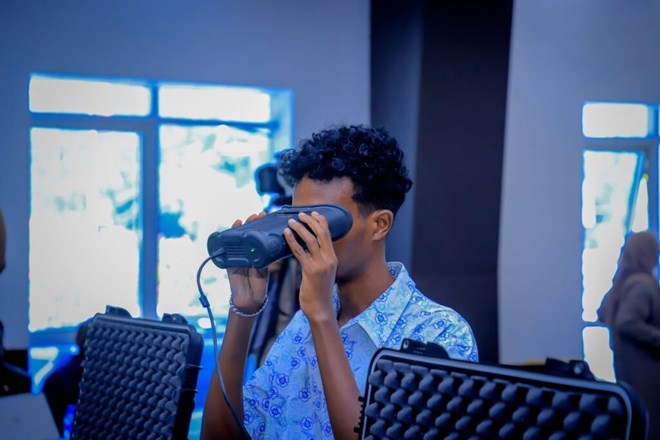
Tuesday January 14, 2025

An attendee explores advanced biometric scanning equipment during a demonstration in Mogadishu.
Mogadishu (HOL) — Somalia is advancing its digital transformation efforts with the rollout of a Civil Registration Management and Vital Statistics System (CRMVS) supported by Pakistan's National Database and Registration Authority (NADRA).
Officials say the initiative is set to become a cornerstone of Somalia's broader National Identification System (SNID) project. Delivered to Somali authorities in November with funding and technical assistance from NADRA, the CRMVS builds on the success of the National Identity Management System (NIMS), which was inaugurated in September 2023 during the first National ID Conference in Mogadishu.
In a statement, NADRA said that its contribution to Somalia's critical identity infrastructure demonstrates both an "unwavering commitment to excellence and our dedication to supporting our global partners."
Somalia's collaboration with Pakistan's NADRA was formalized in 2018 under the latter's "Look Africa" policy. The partnership included a $10.5 million grant and a comprehensive transfer of technology and expertise.
Prime Minister Hamza Abdi Barre described the issuance of biometric ID cards—the first in more than three decades—as "a watershed moment in Somalia's journey toward inclusive governance and digital innovation."
Somalia has an ambitious plan to register 15 million citizens by the 2026 elections, with registration offices planned for each district. However, the initiative faces challenges, including regional disparities, security issues, and limited infrastructure.
Access to formal identification will enable millions of Somali citizens to open bank accounts and participate in the formal economy. Additionally, the system is expected to improve the delivery of essential services such as healthcare and education.
A 2019 McKinsey report suggests that digital ID systems like Somalia's could contribute to a GDP increase of 3–13% globally by 2030.
By enabling accurate identification of citizens, the federal government expects CRMVS to provide reliable citizen identification, which is crucial for border management, election transparency, and anti-corruption efforts.
The National Identification and Registration Authority (NIRA) is tasked with managing the system.